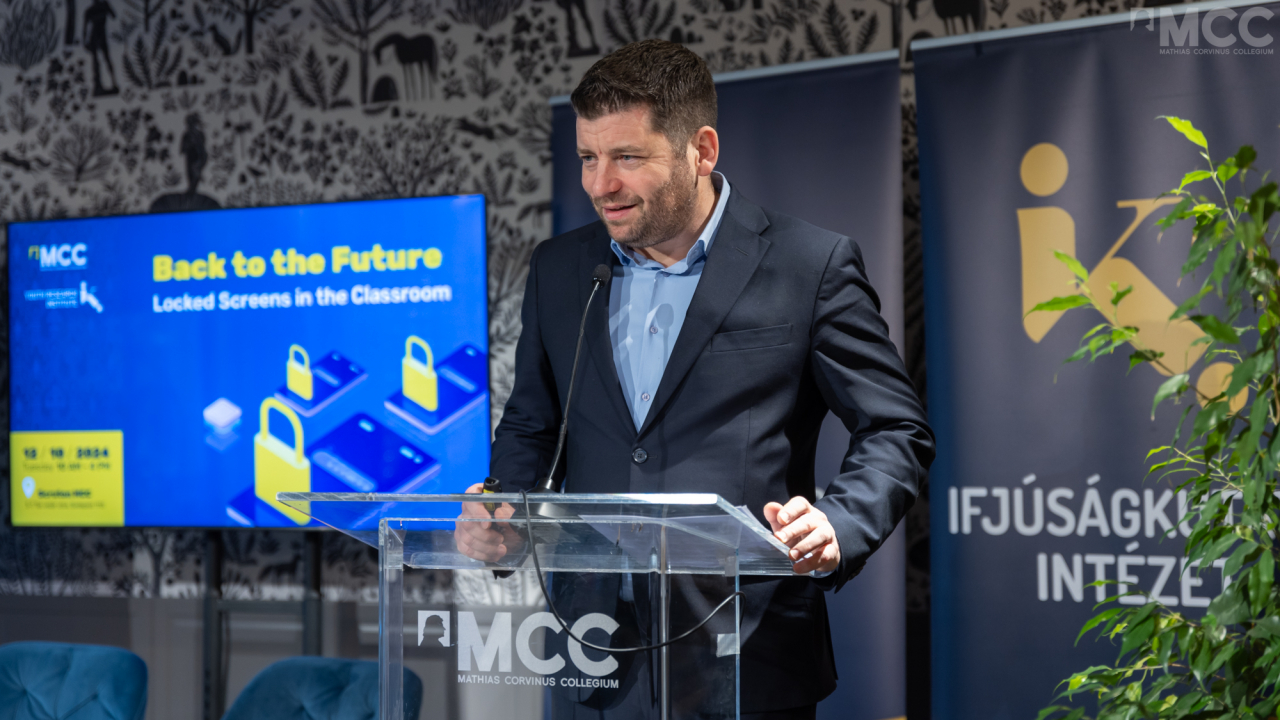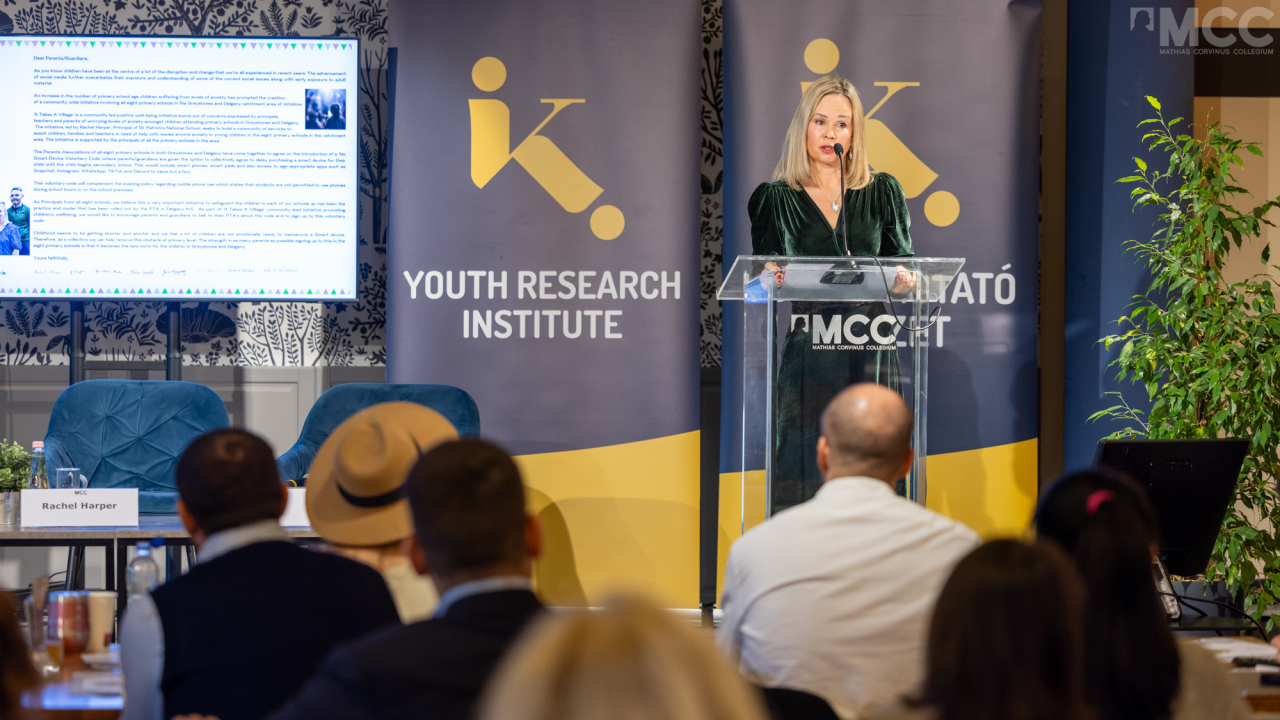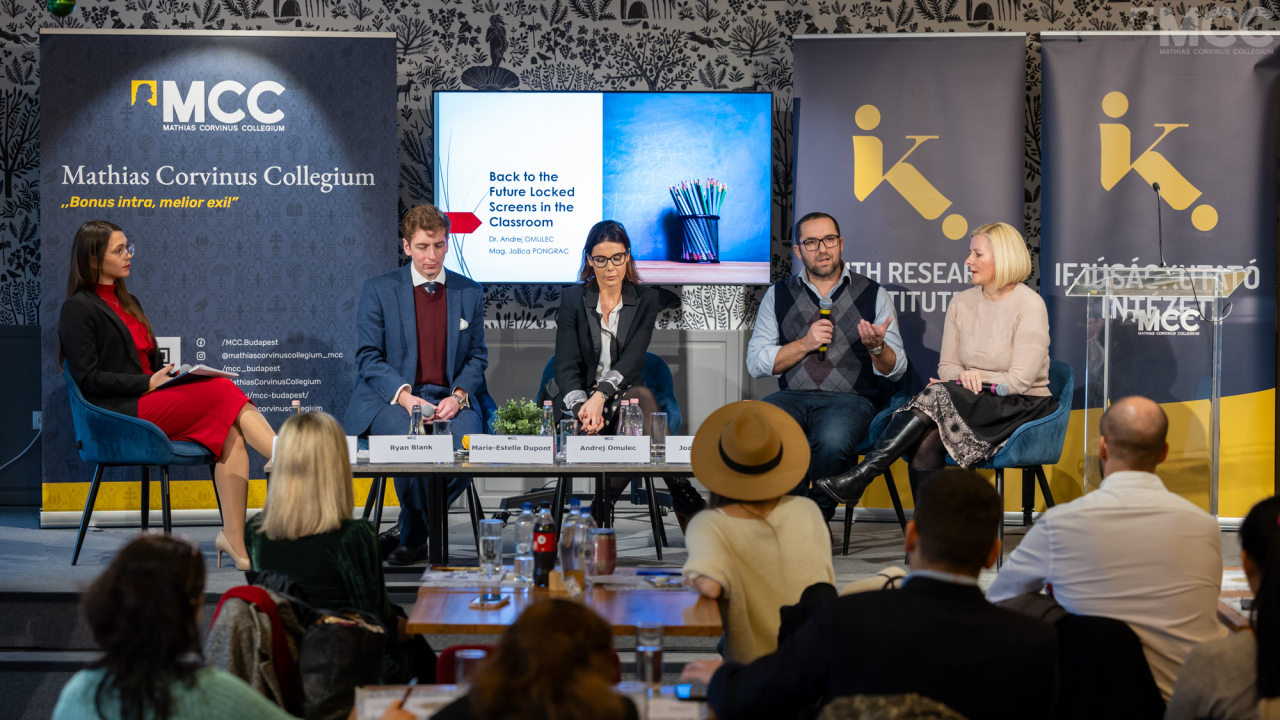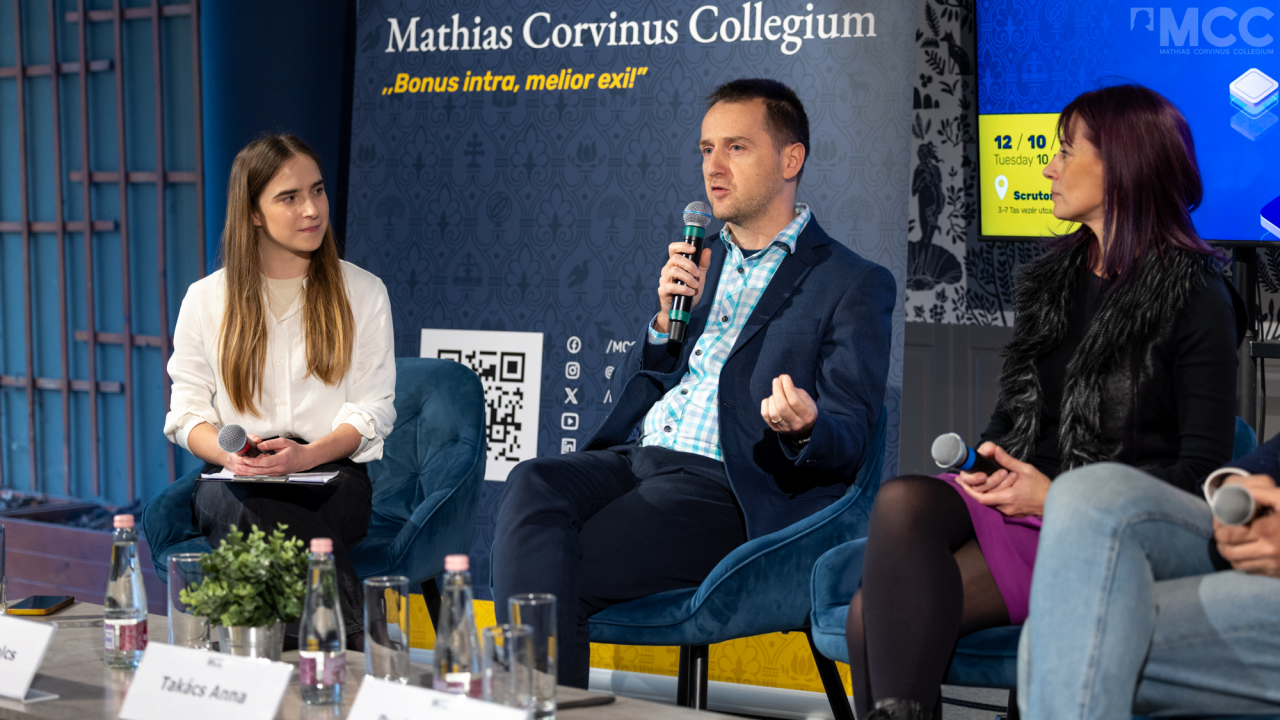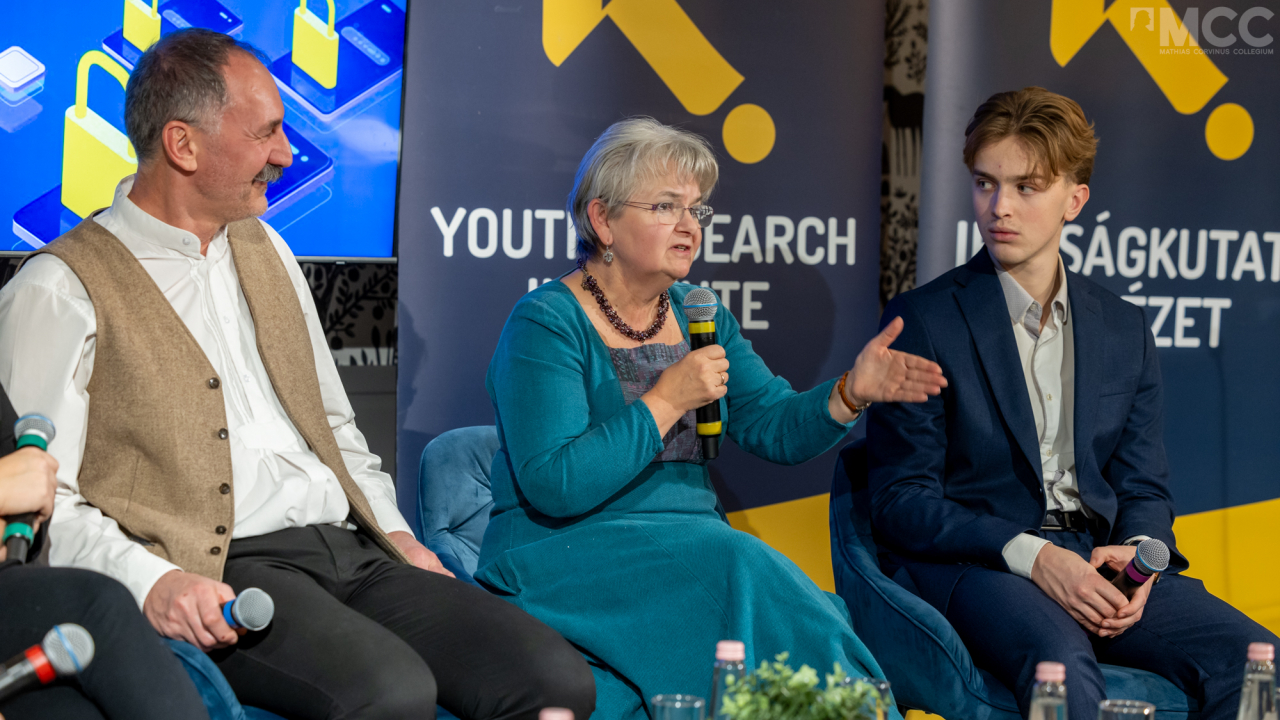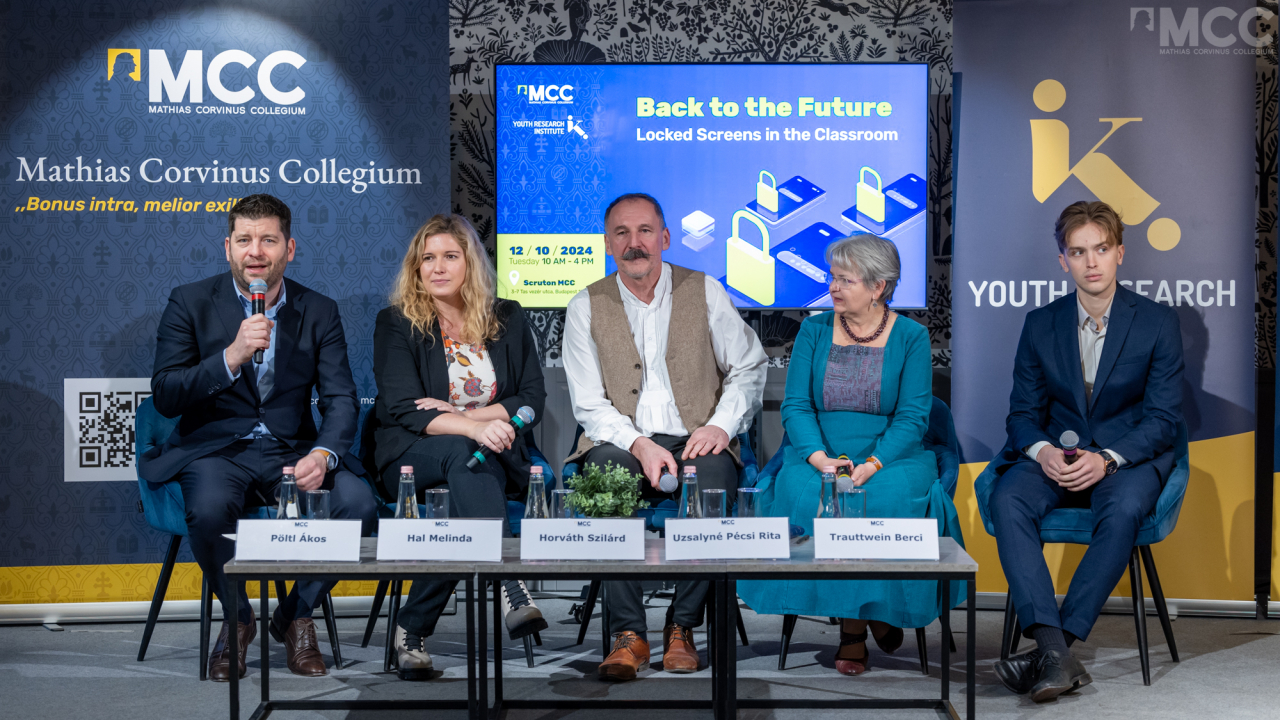Reading time: 2 minutes
Yesterday, the Back to the Future – Locked Screens in the Classroom conference brought together educators, policymakers, and mental health experts to explore the transformative impact of phone-free classrooms and the challenges posed by digital device use. The event, hosted by our Youth Research Institute, examined how reducing technology in classrooms can enhance students’ attention, social skills, and mental well-being, while offering innovative solutions to navigate the digital age.
In his opening remarks, Ákos Pöltl, Senior Researcher the Youth Research Institute, stressed the importance of traditional developmental activities such as exercise, writing, and reading. He explained that excessive smartphone use disrupts these essential practices, hindering mental and physical growth. “Children who spend 8-9 hours a day on screens face significant challenges, not only in their health but also in finding time for activities that foster their development,” he noted.
Rachel Harper, founder of It Takes a Village Ireland and principal of St. Patrick's National School in Greystones, introduced a community-driven approach to addressing these challenges. The initiative encourages parents to collectively agree to delay giving smartphones to their children until secondary school. Harper emphasized that technology itself is not the enemy, but children need proper guidance to use it responsibly. To support this effort, her initiative organizes monthly workshops for parents, focusing on well-being, building self-confidence, and navigating digital challenges.
Throughout the day, panel discussions provided a range of insights. The session on changes in the educational environment explored best practices for phone-free schools, with Harper highlighting Ireland's successes, and Robin Millar from the UK emphasizing the importance of collective responsibility across institutions in addressing technological challenges. A subsequent panel delved into the psychological impact of screen time, with Maire-Estelle Dupont emphasizing the mental health risks associated with excessive screen use and calling for greater parental involvement. Andrej Omulec highlighted the importance of setting boundaries and fostering personal attention to ensure children’s safety and well-being.
The final panel discussion addressed mental health and emotional intelligence in young people. Berci Trauttwein introduced the innovative OUT! app, which incentivizes reduced screen time with real-world rewards such as discounts for engaging in offline activities. Melinda Hal, clinical psychologist, emphasized that mental health is foundational to physical health and highlighted the success of zero-tolerance policies in curbing addiction.
Szilárd Horváth, founder of Búzaszem School, closed the conference by showcasing the profound impact of phone-free environments on students’ emotional and social development. He explained that children who are regularly read to demonstrate emotional intelligence and vocabulary development far ahead of their peers. “This gap will only widen if we don’t make changes,” he warned, urging parents and educators to provide personal attention and promote responsible technology use.
